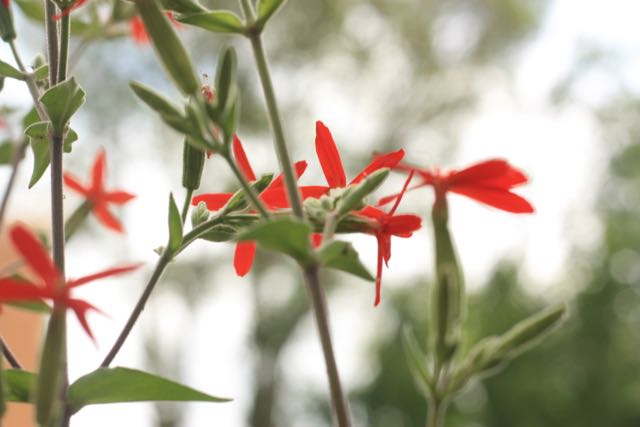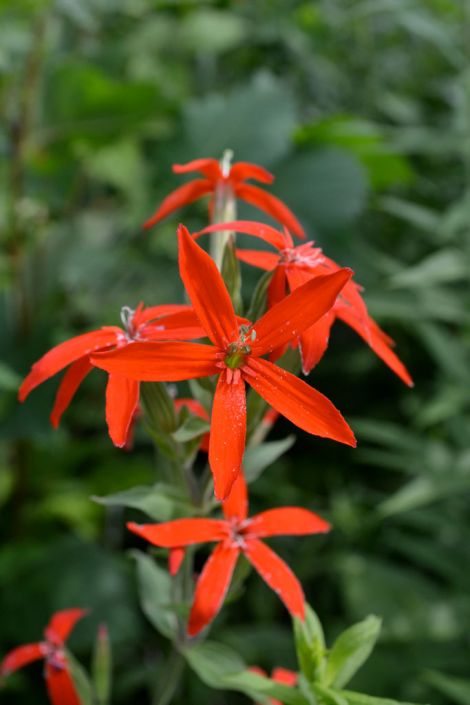

Royal Catchfly is one of few native prairie plants whose flowers are a true red. The single stalks branch only at the top, where the spray of showy scarlet blooms appears in mid to late summer. Only a few birds and insects are able to see the color red, so this plant requires an elite group of pollinators who can respond to that wavelength: ruby-throated hummingbirds and larger butterflies, such as the Tiger Swallowtail. In addition, the configuration of the flower—a long, tubular base topped by a starlike arrangement of five petals—requires its visitors to have a long proboscis, or beak, for effective pollination. The plant stem and the tubular part of the Royal Catchfly flower are studded with long, sticky hairs that trap climbing insects, perhaps to keep them from dining on plant parts.
While native to Illinois, Royal Catchfly is considered an endangered plant there and is found in only a few areas: near Chicago and East St. Louis and in some southeastern counties. Its native habitats are black soil prairies, upland forest clearings, savannas, and open areas along roadsides and railroad rights of way. In the garden, Royal Catchfly prefers full or partial sun and moist soil. It tolerates dry conditions but not shade. Plants may take a few years to reach their full height of 2 to 4 feet and to bloom at their maximum potential.
While native to Illinois, Royal Catchfly is considered an endangered plant there and is found in only a few areas: near Chicago and East St. Louis and in some southeastern counties. Its native habitats are black soil prairies, upland forest clearings, savannas, and open areas along roadsides and railroad rights of way. In the garden, Royal Catchfly prefers full or partial sun and moist soil. It tolerates dry conditions but not shade. Plants may take a few years to reach their full height of 2 to 4 feet and to bloom at their maximum potential.
Another common name for Royal Catchfly is Prairie Fire, a reference to its bright red flowers. In fact, it has a relationship to real prairie fires: Its seeds germinate well in fire-scorched soil. There are no reported medicinal or folklore uses for this plant. Enjoy it for its own beauty and elegance and that of its pollinators.

Scientific Names
Royal Catchfly: Silene regia
Tiger Swallowtail: Papilio glaucus
Ruby-throated Hummingbird: Archilochus colubris
Both photos courtesy of the Prairie Moon Nursery.